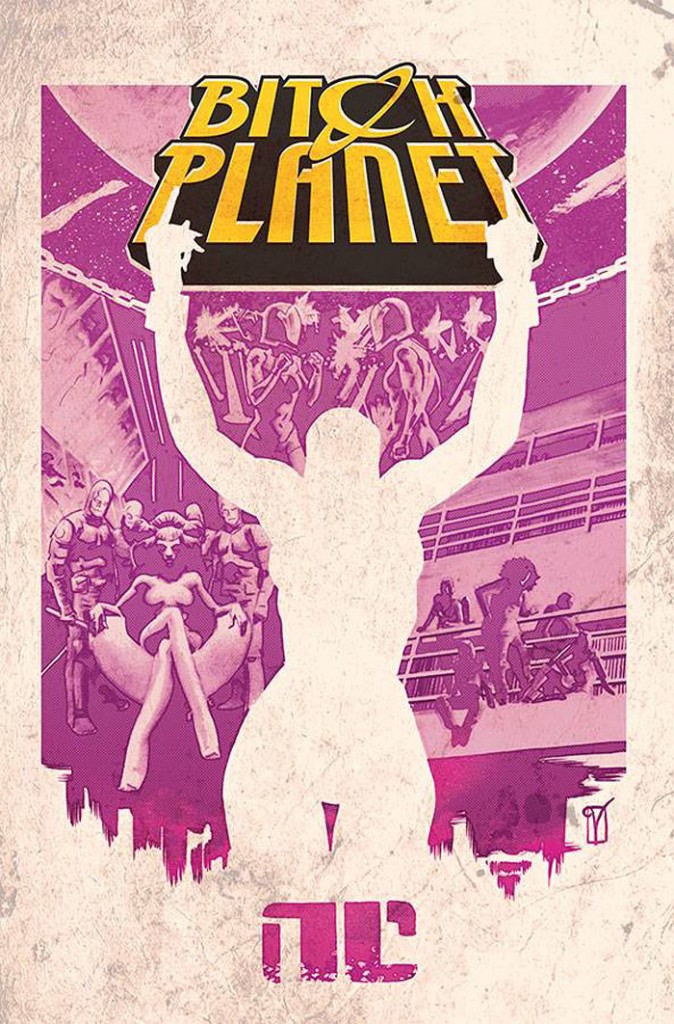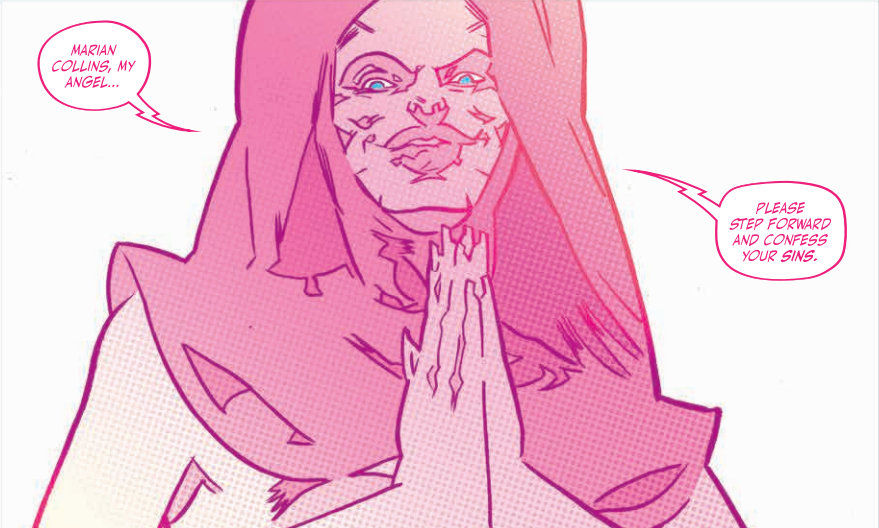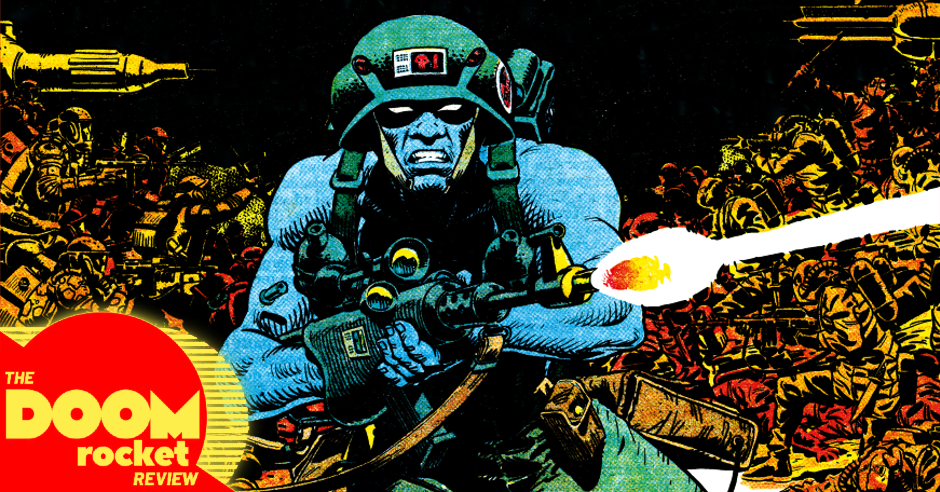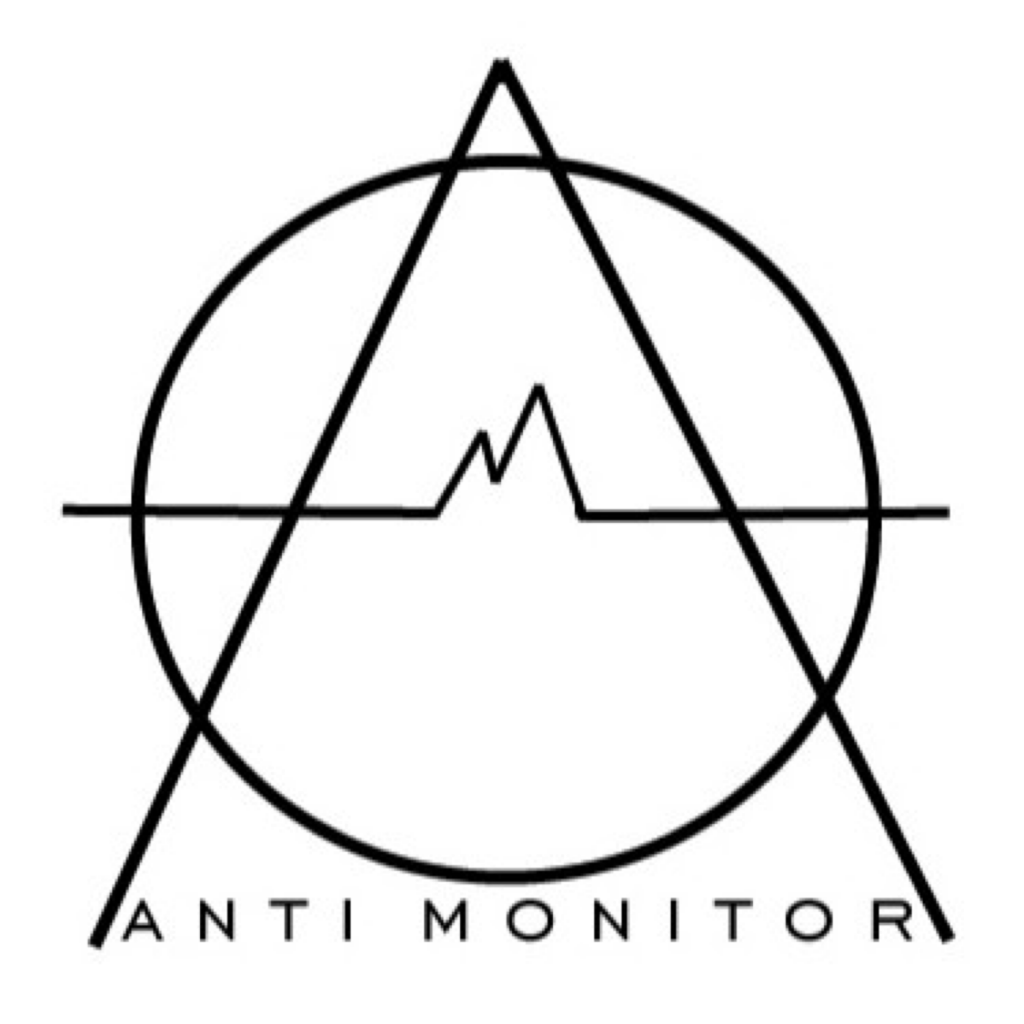 By Molly Jane Kremer. A good piece of fiction – or, more broadly, a good piece of art – makes you feel something. Aside from caring about characters and what happens to them (that’s a given), when a story can additionally make you look at life in a different way, or focus more on certain aspects of society that tend to be ignored, then whatever is being read or watched has transcended that elusive line between satisfactory and exceptional. Bitch Planet #1 is one of those exceptional pieces of fiction. Because this comic, oh this comic, it made me angry: not at the book (because, duh – it’s fucking spectacular) but at how plausible its dystopic future is, and at how a mere exaggeration of current society can bring such ingrained notions to a frightening and disgusting light.
By Molly Jane Kremer. A good piece of fiction – or, more broadly, a good piece of art – makes you feel something. Aside from caring about characters and what happens to them (that’s a given), when a story can additionally make you look at life in a different way, or focus more on certain aspects of society that tend to be ignored, then whatever is being read or watched has transcended that elusive line between satisfactory and exceptional. Bitch Planet #1 is one of those exceptional pieces of fiction. Because this comic, oh this comic, it made me angry: not at the book (because, duh – it’s fucking spectacular) but at how plausible its dystopic future is, and at how a mere exaggeration of current society can bring such ingrained notions to a frightening and disgusting light.
With a comic like this, one that gets the rep of being “Important,” there is a worry that character and plot could get lost behind its “message”. (Of the many concepts nestled within its 24 pages, subtlety isn’t one.) And while writer Kelly Sue DeConnick is undoubtedly evangelical in her patriarchy-smashing desires, this comic thankfully (and elegantly) transcends the allegorical. Bitch Planet shares some similarities with Greg Rucka’s and Michael Lark’s Lazarus, a series with a much more subdued take on an unsettling and credibly bleak future, but as soon as you get to the massive double-splash title page, you see that this is going to be a unique experience. The Bitch Planet logo (colored pink, natch) stretches across two pages, assuring the reader this will be big, loud, and intense, with a palpable fury to match.
Beyond that thrill of a title page, there are attributes of pulp, grindhouse, and horror found inside, with a focus on the tried-and-true “Women In Cages” subgenre. DeConnick, again making use of an in media res opening to great effect, introduces us to a future world where “NCs” (non-compliant women) are shipped off to prison, committed to life sentences at the “Auxiliary Compliance Outpost” (more commonly known as Bitch Planet). “Non-compliance” is a term proven to be a nebulous thing, redefined by men to suit their purposes, with a rationale ranging from not being pleasing enough to the male-gaze, to taking affront to a husband’s infidelity, or to murder.
 This only being the first issue of an ongoing series, the main protagonists aren’t given much background to work with just yet. Some tantalizing hints of backstory are to be gleaned (“I know where I seen you before, girl…”), but we’re only given one prisoner’s heartbreaking and hideous reason for being sent to the prison planet. The other two prisoners we’re introduced to, Penny Rolle and Kamau Kogo, are as yet enigmatically unknown ass-kickers. It’s exciting (and refreshing) to have a comic as high-profile and hyped as this one feature two black women. Time will tell how fully-realized they’ll continue to be (we only have one issue to go on so far), but as of right now they’re written as complex, motivated, and compelling leads.
This only being the first issue of an ongoing series, the main protagonists aren’t given much background to work with just yet. Some tantalizing hints of backstory are to be gleaned (“I know where I seen you before, girl…”), but we’re only given one prisoner’s heartbreaking and hideous reason for being sent to the prison planet. The other two prisoners we’re introduced to, Penny Rolle and Kamau Kogo, are as yet enigmatically unknown ass-kickers. It’s exciting (and refreshing) to have a comic as high-profile and hyped as this one feature two black women. Time will tell how fully-realized they’ll continue to be (we only have one issue to go on so far), but as of right now they’re written as complex, motivated, and compelling leads.
It’s ironic that 70’s exploitation movies are an obvious influence, because the book more often empowers these women instead of exploiting them. Nudity abounds in this comic, but it’s never titillating, nor does it attempt to be. Their nudity instead discomforts: exposed women are herded along like so many cattle, or brutally beaten by creepily-masked guards. The womens’ body types are rendered honestly and realistically, from small to very large, and are expertly drawn by artist Valentine De Landro.
The art is arresting from start to finish, and De Landro’s gritty, heavy-inked style and his penchant for affecting chiaroscuro is a large part of it. His panel layouts are creative without being showy, and he has a masterly grasp of perspective. His faces are also wonderfully expressive: the few (presumably compliant) women we get a glimpse of on earth have smiles plastered on their faces, but the women on Bitch Planet run the gamut of pathos, and De Landro effectively communicates each expression of dread and hate and terror and fury.
 The coloring by Cris Peter is just as laudable. The dotted, zip-a-tone shaded colors really bring home that retro, pulptastic quality, and she emphasizes De Landro’s already-impressive sense of contrast and shadow. The scenes on earth have a bland, washed-out look to them, while the prison scenes are richly colored: blues, blacks, oranges, and violent splashes of red lend depth and drama to an already tense tableau.
The coloring by Cris Peter is just as laudable. The dotted, zip-a-tone shaded colors really bring home that retro, pulptastic quality, and she emphasizes De Landro’s already-impressive sense of contrast and shadow. The scenes on earth have a bland, washed-out look to them, while the prison scenes are richly colored: blues, blacks, oranges, and violent splashes of red lend depth and drama to an already tense tableau.
Neon pink is used to great effect throughout the issue, most notably on a hologram the guards call “The Model”. It functions as the main interface between the guards and the prisoners, and is horrifying in its unnatural and exaggerated male-gaze-ideal of the feminine, with the Barbie-like proportions seen in badly-drawn superhero comics. Peter colors the hologram expertly, giving it an almost plasticine sheen, and – of course – blue eyes; serving almost as the warden of Bitch Planet, it (she?) is the physical embodiment of what the prisoners didn’t live up to in their captors’ eyes.
While this comic can (and, in this writer’s opinion, should) make the reader uncomfortable (and, yes, angry) it should at the very least galvanize him or her to think about and question how we treat other human beings, both personally and institutionally, and how we allow ourselves to be treated. (It would be reassuring to think a comic like this could make even the most misogynistic turd of a human reevaluate their choices in life, but that might be a little optimistic.) But even beyond all that, Bitch Planet #1 is an incredibly well-written, visually stunning, entertaining piece of fiction that, while still holding that (dark) mirror up to nature, pulls you into a gripping story, locks you in, and throws away the key.
Image Comics/$3.50
Written by Kelly Sue DeConnick.
Art by Valentine De Landro.
Colors by Cris Peter.
9.5 out of 10













